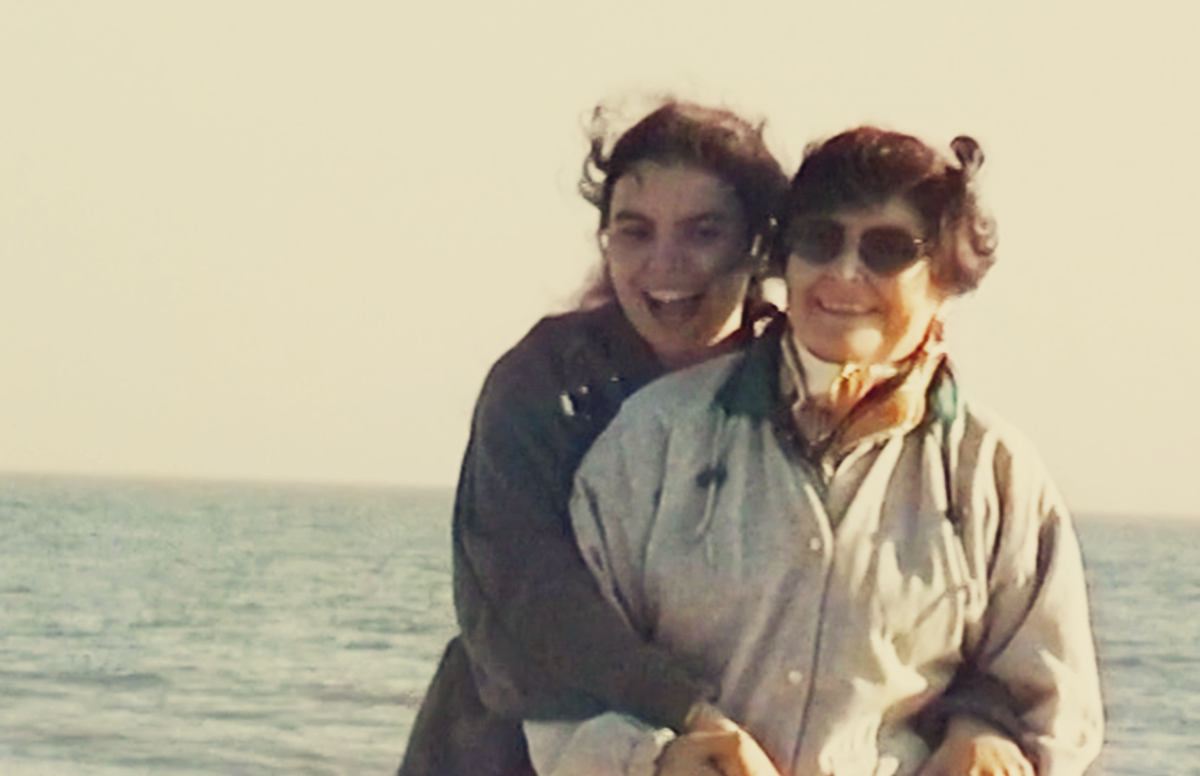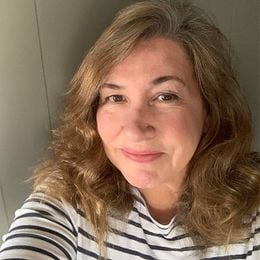'I'm Thankful Mom Is Not Here to Live Through This'
For Next Avenue readers, the pandemic provokes sadness for others unable to mourn
As the COVID-19 pandemic rages on, many have been forced to be separated from loved ones during their final hours. It's not only the act of being present when a mother, father, grandparent or other loved one dies that is being lost. What else is being taken away is the precious time to share meaningful stories, feelings and memories in those days, hours and minutes that lead up to the moment of death.

Emmy Award-nominated and Peabody Award- winning filmmaker Judith Helfand, of New York City, reflected on what those final days meant to her and to her mom in "Thank G-D My Mother is Already Dead: Mourning in the Time of Coronavirus," for The Daily Beast website, which Next Avenue co-posted on its Facebook page earlier in May. Helfand's essay drew more than 1,900 reactions and 230-plus comments from Next Avenue readers.
"At the end of her life there were two basic things she wanted: time with me and peace of mind."
Helfand's mother died seven years ago: "Her cancer diagnosis and inevitable death were the most harrowing experiences I could have ever imagined," Helfand wrote. During her mother's time in home hospice, they shared laughter (lamenting the fact that Helfand's mom would die before the 2014 season premiere of Downton Abbey), but also shared intimate moments, holding hands as death drew near.
Our Commitment to Covering the Coronavirus
We are committed to reliable reporting on the risks of the coronavirus and steps you can take to benefit you, your loved ones and others in your community. Read Next Avenue's Coronavirus Coverage.
As Helfand observed, she knew what her mother's wishes were before she died. "At the end of her life there were two basic things she wanted: time with me and peace of mind. She wanted to talk about the end of her life and what she really hoped to pass on to us, literally and spiritually. She wanted to go through all the stuff that she couldn't take with her, so we would know what was what. And she wanted to talk about what really mattered — to her, to us, to our family."
Glad They Could Say Goodbye
Helfand's piece provoked many emotions among Next Avenue readers. For those whose loved ones died before the pandemic — which might have been anywhere from a few months to 20 years ago — many expressed sentiments similar to Helfand's, and gratitude that they could be there to bring comfort, to share stories and to say goodbye.
More than 75 readers simply said, "I can relate" or "I feel the same way." Some went on to offer personal anecdotes of how they think it would have been for their late loved one to have faced death during the pandemic.
"Both my parents died last June, 10 days apart. So many times, I have held the thoughts in my mind of what their last days would have been like if that were happening now," wrote Linda on Facebook. "I shudder at the scenarios, even though I miss them so much."
Suzanna wrote, "My brother passed away last fall. He spent his last few weeks in hospice care. I am grateful relatives and friends got the chance to spend some time with him there and say goodbye. I also was relieved to think he didn't have to go through all that alone."
"My mother suffered with dementia for 7 years in a nursing home. She was always 'lost' until she saw my face. I couldn't even imagine not being able to hold her in my arms and be with her in the end. She passed away a year ago and I would have been heartbroken if her family couldn't have been at the funeral. As much as a I miss her, the timing was such a BLESSING!" wrote Susie.
And TJ said, "I lost my stepfather (married 35 years to my mom) almost six months ago. My mom and I have had the same conversation. We're glad he was at home with my mom, even talking to her, less than 15 minutes before his death. I'm grateful he left this earth before this [pandemic] happened."
Missing Out on Traditional Rituals
The idea of a loved one dying alone is something that can be particularly troubling.
Christine Harvell, a psychotherapist in the Los Angeles area, says that especially during the quarantine we are experiencing, the worries of this reality can be heightened.
"I think a lot of our biggest fear in this situation is not being able to be there with our loved one as they pass away. We may worry they will leave this world feeling scared, alone, or abandoned," she says. "That's a hard thought to face and our minds may 'fill in the blank' with a worst-case scenario, but remember — we really don't know what happened or what they experienced. And if you can imagine the worst-case scenario, then you can imagine the best-case scenario, too."
"Sometimes, the hardest part of losing someone is accepting the fact that death is inevitable, unfair, and more often than not, completely out of our control."
Due to the pandemic, the rituals of mourning have been forced to occur in a vacuum; if an in-person memorial service is held, it's limited to 10 attendees. Many funeral services have been virtual. Some have been postponed altogether. The line in an obituary that reads, "Due to the current circumstances, a memorial service will be held at a later date," has become commonplace.
In Helfand's piece, she fondly recalled the story of her mother's funeral, how she was buried in a Jewish cemetery on the border of Long Island and Queens, N.Y., and when the burial was complete, Helfand said, "Our family and friends formed a human archway for us to walk through, physically embodying the community that would hold us up while we grieved."
According to Harvell, the missed opportunity to grieve in traditional ways can compound the sense of loss.
"For many of us, part of the mourning process is convening our friends and family for an event (or many events) or a religious rite in honor of our lost loved one. Grieving without familiar traditions and apart from community may leave mourners feeling guilty that they were unable to carry out a loved one's wishes for a particular celebration, disrespected or abandoned by their community, or like the burden of their grief is theirs to bear alone," she says.
How Grieving May Be Altered
I asked Harvell if losing someone during the pandemic — with all of the difficult restrictions in place — may cause grief to be prolonged, or feelings of bitterness to ensue as time goes on.
"Sometimes, the hardest part of losing someone is accepting the fact that death is inevitable, unfair and more often than not, completely out of our control. That's one of the reasons why guilt and shame tend to pop up for us when a loved one dies," Harvell says. "Our brains might want to spend time listing all the 'could've' and 'should've's ('I should've done X, then this wouldn't have happened'). But giving these thoughts too much airtime offers little benefit at a high cost, because it tends to lead to the (not completely rational) conclusion that you had control of the situation."
Some Next Avenue readers said they've found themselves missing and grieving deceased loved ones all over again during the pandemic, One woman wrote of her mother who passed away 20 years ago: "It would have been so rough on her to go through this virus. And the thought of her getting the virus...very sad."
Harvell says that the pandemic may trigger difficult memories for anyone who has lost a loved one, but cautions people to be aware if the feelings become overwhelming and to recognize the difference between grieving and being retraumatized.
"Grieving is a process we move through (though never as quickly as we'd like) when our brains process a loss in order to integrate the idea that someone is no longer there. It brings up some strong and unpleasant emotions. But generally, over time, the intensity trends downward," she says. "Being retraumatized is different. It happens when a stimulus sets off 'flooding,' being overwhelmed by vivid flashback memories and physical sensations of a trauma as if they are happening in the present."
Harvell says if you find yourself feeling retraumatized about a past loss, you might want to consider putting limits on your news and social media exposure or reach out to a professional for help.


